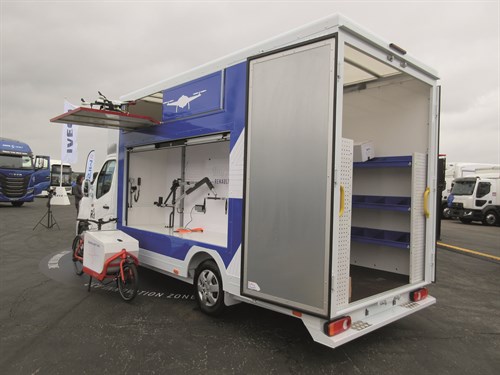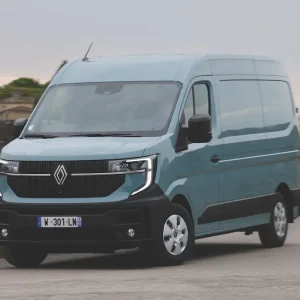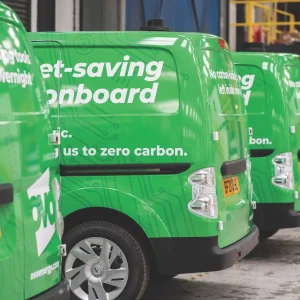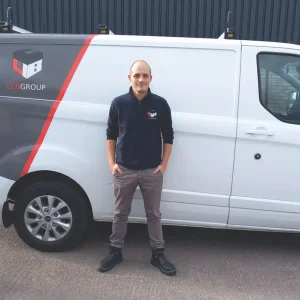In partnership with construction contractor Balfour Beatty and the Lighthouse Club charity, Ford launched the Make it Visible campaign at the 2022 Commercial Vehicle Show to offer support to workers suffering with mental health problems within the construction industry. Shockingly, two people per day within the industry commit suicide, according to the Office for National Statistics.
The high-visibility campaign uses higher-viz safety vests to grab people’s attention and point them in the direction of help when they need it. Despite the extensive physical safety measures taken to protect on-site workers, construction workers in the UK and Ireland are taking their own lives, unaware of the help and support available.
As the UK’s commercial vehicle leader, Ford has the clout to make a difference through raising awareness and fight back against the crisis in mental health that has been exacerbated by the tough economic conditions affecting so many workers.
Together with the Lighthouse Club, and Balfour Beatty, Ford seeks to promote wellbeing awareness amongst its light commercial vehicle customers. With Ford accounting for almost one in three new commercial vehicles sold throughout 2021 – and more in the construction industry, its putting mental safety on an equal footing with physical safety on building sites is a crucial step for these customers. By helping to make the support more visible, more people will be able to seek assistance from the available resources.
Mandy Dean, director, commercial vehicles, Ford of Britain and Ireland, says: “This campaign is hugely important to Ford and highlights the importance of mental wellbeing alongside physical wellbeing on the construction site.
“As the UK’s best-selling commercial vehicle brand, it is likely the majority of construction workers are also Ford customers and operators, so we feel we have a duty to support them, through this partnership with the Lighthouse Club, raising awareness and getting support to those in need of it.”
The “Make it Visible” campaign follows on from Ford’s “Elephant in the Transit” initiative from 2018, which raised awareness of male suicide and promoted the front seats of a vehicle as a safe space to talk.
This latest scheme sets out to provide counsellors with a means to get to construction sites and features on-site posters matching the vest’s colours. These posters direct workers to a safe place to talk off-site, so they can seek help easily.
Bill Hill, CEO of the Lighthouse Construction Industry Charity, says: “These highly distinguishable vans will be visiting sites across the country to deliver visible support to the boots on the ground workforce. The vehicles are manned by the Lighthouse Club’s on-site team who are all Mental Health First Aiders with relatable experiences in the construction industry. I am convinced that this initiative will have a positive impact on workforce wellbeing and ultimately save lives.”
Heather Bryant, health, safety, environment and sustainability director at Balfour Beatty, says: “For too long, the construction and infrastructure industry has treated mental health as the poor cousin of physical health. We must change this incredibly outdated perception – and at Balfour Beatty, we are continuing to lead the charge.”
Ford’s drive to place mental wellbeing as equal to physical wellbeing is vital and a worthy winner of the Editor’s Choice Award.
Highly Commended: E-Tech Master OptiModule

Body builder Horton Commercials teamed up with Renault Trucks to build the E-Tech Master OptiModale on an electric Renault Master platform cab. It features a 4.1m low-loader Luton body with a drone mounted in its roof on a retractable heli-drone pad. It also boasts an electrically power-assisted eBullitt cargo bike carried in a nearside compartment from which it can be lowered using a small built-in crane.
Able to carry up to 100kg, the bike can be used to deliver parcels if OptiModale is stuck in grid-locked traffic, assuming the vehicle is crewed by two people. The UAVTEK drone can only lift 2kg but could be used to, for example, fly off urgently-need medical supplies.
Grossing at 3.5t, OptiModale can carry 800kg of parcels, says Renault Trucks, and equipped with a 33kWh battery, it can offer a range of 80 miles between recharges although a 52kWh battery can be specified if more range is required.





